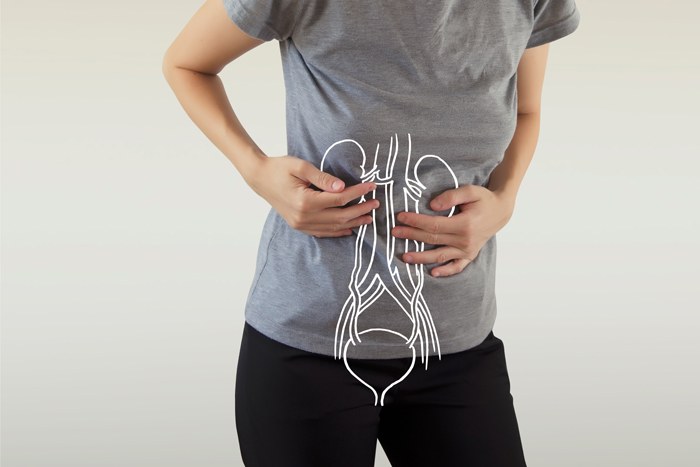Kidney Diseases Treatment & Diagnostics in C Scheme, Jaipur
Kidney Diseases
Kidneys are an essential part of the endocrine system and are responsible for filtering waste products, excess water, and blood from the body. Kidneys are found just above the waist and below the rib cage of a human body. Kidney diseases occur when the kidney(s) are either damaged or cannot perform functionally. Failure of either kidney can cause harm to the immune system of a human body. With the help of modern techniques, it is possible to have a longer life if a person is diagnosed with any kidney disease.

Types of Kidney Diseases
Chronic Kidney Diseases
The disease is caused by high blood pressure and diabetes. The risk of this disease is commonly found in people of age above 65 years.
Kidney Stones
Kidney stones are a common problem that includes the formation of a solid mass of minerals and other substances in the kidney. This can be painful and the stones are passed out during urination.
Glomerulonephritis
This is a type of inflammation occurring in the small structures inside the kidney which purifies the blood. It is caused by infection, drugs, or other abnormalities. Studies have shown that this can get better on its own.
Polycystic Kidney Disease
This is a genetic disorder that produces small sacs inside the kidney. These cysts tend to destroy the kidney from the inside and cause kidney failure.
Urinary Tract Infections
Urinary Tract infections are commonly found in the bladder and urethra. They can be easily treated and rarely lead to any critical condition.
Symptoms of Kidney Diseases
Kidney damage gets worse slowly and the symptoms start to reveal themselves slowly over time. These may include:
- High blood pressure
- Nausea and vomiting
- Loss of appetite
- A metallic taste in your mouth
- Fatigue
- Weakness
- Trouble thinking
- Sleep issues
- Muscle twitches and cramps
- Swelling in your feet and ankles
- Itching that won't go away
How are Kidney Diseases Treated?
Once the doctors at Apollo Spectra, Jaipur have diagnosed kidney disease, they will advise first treating it with a change in lifestyle and prescribing medicines. With the help of medications and exercises, the health can be improved and there is a slight possibility of curing the disease.
But when the kidney does not respond to any medication, doctors may recommend dialysis. The process involves a special instrument that performs the functions of the kidney for the body. Now two types of dialysis can be recommended by healthcare providers.
Hemodialysis
During the process, the blood is pumped using a special machine that purifies waste products and fluids. Hemodialysis can be performed at your home, hospital, or dialysis centre. The process takes up to 3-5 hours to complete and its procedure is recommended three sessions per week. However, this process can also be done in shorter, more frequent sessions.
Peritoneal dialysis
Here, a tube is implanted and used to fill the abdomen with a fluid called dialysate. The dialysate is then removed from the abdomen. This is further divided into continuous ambulatory peritoneal dialysis and continuous cycler-assisted peritoneal dialysis.
Conclusion
Kidney diseases do not go away after being diagnosed so it is better to lead a healthy life and control blood pressure. If any signs of the disease are occurring then please contact your doctor immediately and discuss the problem in detail.
Request an appointment at Apollo Spectra Hospitals, Jaipur
Call 1860 500 2244 to book an appointment.
No, Dialysis treatment is done to purify the blood and filter it through a machine. This method can help you live longer but cannot cure any kidney disease.
Chronic kidney disease is the most critical disease anyone can get. It progressively destroys the kidney and then the body shows symptoms of the disease. It is a life-long disease that does not improve on its own.
The common prevention includes avoiding smoking, drinking plenty of water, controlling blood pressure, and reducing salt intake. Include daily exercise in your lifestyle to lead a healthy life.
Symptoms
Our Top Specialities
NOTICE BOARD
CONTACT US
CONTACT US
 Book Appointment
Book Appointment


.svg)
.svg)
.svg)
.svg)








